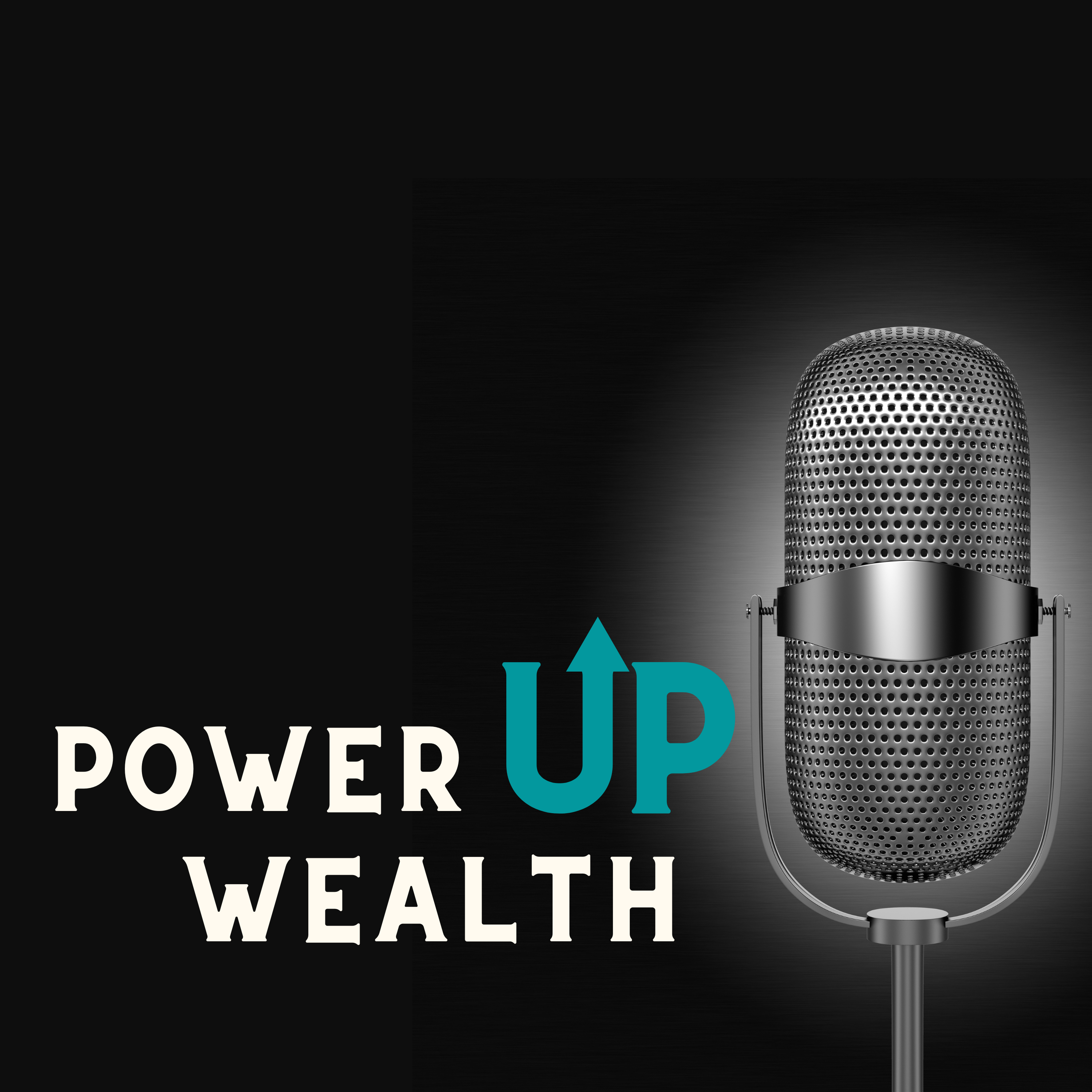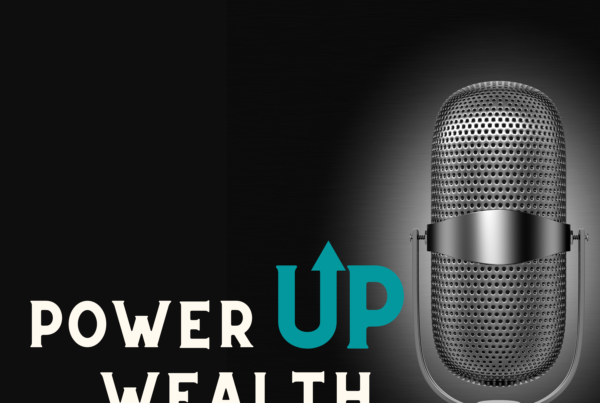Power Up Wealth podcast – Inflation – Episode 10 transcript:
Sharla Jessop 0:00
Inflation reported at 8.5%. What can we expect next? I’m Sharla Jessop. Today we’re going to talk about inflation with our Chief Investment Strategist, James Derrick.
Welcome to the SFS Power Up Wealth podcast, where we provide impactful insight and expert opinions on timeless financial principles and timely investment topics, preparing you to make smarter decisions with your money.
James. Thank you for joining us today.
James Derrick 0:46
Of course.
Sharla Jessop 0:47
James is the Chief Investment Strategist with Smedley Financial Services and runs our investment management team. James, what is up with inflation?
James Derrick 0:55
Well, at 8.5%, we’re looking at a pretty big number. It’s the biggest number since December 1981 slash January 1982. So it’s big and it and the number is high enough, it’s beginning to make a difference. 8.5 is approximately 1/12th. Which means that if you didn’t get a raise in the last year, you’re actually working one month for free compared to last year.
Sharla Jessop 1:18
Ouch!
James Derrick 1:19
Yes, not not very motivating. And so it’s a big number, and it’s cause for some concern. The silver lining, though, is that core inflation was only 6%. Now I say only 6% is still pretty big. But at six, it’s looking a little bit better than it was before. And why? Why do we look at the core? We strip out energy and food, which tend to be really volatile. And also, because the Federal Reserve who manages interest rates in the United States, they don’t have a lot of control over gas prices and over food. They can’t control how well the crops are growing in the Midwest, or let alone in Ukraine or other places in the world that are having very difficult times right now.
Sharla Jessop 2:08
How does inflation impact what’s going on with interest rates? You said the Fed can only control interest rates. Let’s talk a little bit about interest rates and inflation.
James Derrick 2:16
Sure. Well, let’s say that you’re buying a home, and you can get a 3% interest rate for your mortgage. But your home is appreciating at 20%. Well, that’s a 17% difference, that is insane. And it’s almost like free money. So that kind of thing is almost too good to be true. And it usually doesn’t last. I mean, what happens is, is that, first of all, the demand goes up, and banks need to charge higher interest rates, because they’re losing money on inflation. If you’re only paying them 3%, they’re losing money. So then, so interest rates just kind of naturally move up. When the federal government wants to issue their own debt to borrow money, which is you know, they do a lot of that just about every week, they are borrowing money, and they need to entice people to buy their bonds. And at 2%, there might not be people interested in loaning money to the government. And so interest rates just kind of naturally rise. The Federal Reserve, though, makes a very calculated decision to change their own interest rate, which is kind of an overnight rate that the banks can use to get money. And so that indirectly starts to affect all the interest rates in the economy. So as we start talking about the Fed raising rates, we’re talking about all interest rates tend to rise as a result of that. And it begins to change demand as well. As you can imagine, like if the mortgage rate goes from 3%, to 5%, which is exactly what has happened this year, it changes demand. It may be the first people start saying gosh if interest rates are going to rise, I better buy a home. And so initially, it might actually spur more growth. But then at some point, people say, wow, interest rates are really high, and I can’t really afford the monthly payments. So I’m going to wait to buy a home or I’m going to buy a smaller home. Or maybe I’m just going to put in a lower offer for this home. And so the dynamics are kind of complicated, but it definitely has an effect on people’s behavior.
Sharla Jessop 4:18
So it sounds like it can really slow this housing frenzy that we have going on right now. Especially in Utah.
James Derrick 4:24
Yes, I think it will. You know, I don’t see it as like a big crisis, you know, like in 2006, 2007, headed into what we now call The Great Recession. I mean, I don’t see it like that, because back then we had a surplus of housing. And now there’s a real shortage of homebuilders were under building for almost a decade. And so there’s just not a lot of homes out there available. And so it’s a different dynamic than what we had back then. But I definitely think that it’s going to slow those increases. We’ve gotten very used to seeing housing prices increase from year to year and I think it’s going to slow down and that would be totally normal and no reason to panic.
Sharla Jessop 5:00
Yeah, that makes sense. So interest rates, you’d mentioned also not just the housing market, they’re going to impact but what about businesses? How does that impact the growth of businesses if interest rates go up?
James Derrick 5:10
Well, it just makes borrowing more expensive. And so, you know, it might mean that people take an idea that they have a business idea, and maybe they sit on it, and they don’t move. Or I think in a lot of cases, though, people will probably move forward with their ideas and still go for it as a business, because the rates are still relatively low. You know, the last time inflation was at 8.5%, interest rates were much, much higher. They were the 30-year mortgage rate was 17%, at the beginning of 1982. And so, and you would have had higher rates across the board everywhere, you know, car loans, credit card loans, bank loans, everything would have been more expensive back then. So I think that they’re still relatively low. And I don’t think they’re gonna have a major impact on most businesses yet.
Sharla Jessop 6:01
So that’s good, because that may impact the economy. How do you see interest rates impacting the overall economy? If businesses continue to grow because they’ll still borrow money? What’s the outcome going to be for the economy?
James Derrick 6:12
Well, there’s a big impact on the financial markets. Existing bonds and stocks out there. It can have an impact on confidence. And I think that’s why what’s happened so far this year has been alarming to investors, because things have changed so quickly. When interest rates rise as fast as they have, it begins to affect people’s confidence. And that’s probably the most deteriorating effect. And that’s why it would be nice to see things slow down because I think it would help people think with a level head. I think it would lead people to look for more opportunities. So I think it would be a real positive for them to slow down. But as long as inflation is as high as it is, you know, maybe you know, maybe interest rates will just continue to go.
Sharla Jessop 6:54
To increase I know the Fed has outlined that they increased in March and that they’re they anticipate six additional increases. Maybe at a greater rate than what we saw in March, even.
James Derrick 7:04
They’re likely to increase six times this year. And some of those will be doubles. And so depending on how you want to calculate that, I mean, if you want to talk about half a percent as two moves, then that would be like the Fed raising rates 10 times. I don’t know if they’ll get there, honestly, because it’s going to have a real impact on the economy as they get more aggressive. I think, though, that the best thing that could happen would be for inflation to slow down. And that’s why I talked about core inflation slowing down a bit. If we see March at 8.5% as the high point. And that’s a big if, we don’t know yet if it’s going to happen. But if it is the high point, then that’s going to be welcomed news for businesses and investors. Because that just means that interest rates can slow down. The Federal Reserve will not have to be as aggressive and just going to be welcomed by everybody.
Sharla Jessop 8:00
I can see that and I would say you know, every one of us is feeling the pinch of inflation right now. So we’re all anxious for inflation to come down a bit-level off and come down. I think it makes a big difference for especially for those who are living on fixed incomes, you know, and prices are going up. James, thank you so much for your information today.
James Derrick 8:20
Happy to be here.
Shane Thomas 8:25
Thank you for joining the Power Up Wealth podcast. Smedley Financial is located at 102 S 200 E Ste 100 in Salt Lake City, UT 84111. Call us today at 800-748-4788. You can also find us on the web at Smedleyfinancial.com, Facebook, Instagram, Twitter, and LinkedIn.
The views expressed are Smedley Financials and should not be construed directly or indirectly as an offer to buy or sell any securities or services mentioned herein. Investing is subject to risks, including loss of principal invested. Past performance is not a guarantee of future results. No strategy can assure a profit nor protect against loss. Please note that individual situations can vary. Therefore, the information should only be relied upon when coordinated with individual professional advice. Securities offered through Securities America. Inc., Member FlNRA/SIPC. Roger M. Smedley, Sharla J. Jessop, James R. Derrick, Shane P. Thomas, Mikal B. Aune, Jordan R. Hadfield, Lorayne B. Taylor, Registered Representatives. Investment Advisor Representatives of Smedley Financial Services, Inc.®. Advisory services offered through Smedley Financial Services, Inc.® Smedley Financial Services, Inc.®, and Securities America, Inc. are separate entities.


